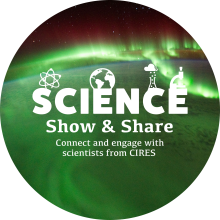McMurdo Speaker Series: Antarctica, Space & Lasers (Oh my!) Seasons in Antarctica
Join McMurdo scientist, Ian Geraghty, from McMurdo Antarctica for a 10-15 minute lesson on Seasons in Antarctica, followed by a live Q&A. Bring your classroom on camera and ask your questions directly to Ian and his colleagues. In this lesson, we will cover what causes the seasons and why is Antarctica's seasons so unique; Learn about Polar Night and Day and how life adapts to these seasons.
Seasons in Antarctica
- What causes the seasons?
- Why is the long dark winter important for LIDAR research?
- Why do we stay in Antarctica for over a year at a time to study the atmosphere?
- What is it like in the summer and winter in Antarctica?
Time: 1 pm ET - 1:45 pm ET Tuesday, October 18th
Register for the link: https://bit.ly/3Akryav
Resources
-
Antarctica: Connecting Climate Change, Melting Ice Shelves, and Pooping Penguins - This is a five-part curriculum about Antarctic environmental processes and building connections between ice shelves, surface melt, climate change - and penguins!
-
Unique Polar Processes - This peer-reviewed educational video describes sea ice and land ice processes that are unique to polar regions.
-
Equinox in the Classroom (Google Doc) - Before she left to spend several weeks in the Arctic Ocean aboard an icebreaker on the MOSAiC expedition, PolarTREC educator Katie Gavenus put together a collection of educational resources for teaching about the equinox. Whether you're a fan of kinesthetic activities, art, or video lessons, there's something here for you!
About the Speaker - Ian Geraghty
Ian Geraghty is a second-year Ph.D. candidate in Dr. Xinzhao Chu's group at CIRES. He completed his undergraduate degree in the Aerospace Engineering Sciences department at CU, during which he took his first trip to McMurdo Station, Antarctica in support of the McMurdo lidar campaign. He went on to spend over a year at McMurdo Station running lidar systems to collect upper atmospheric data and summer running atmospheric science instruments at Summit Station on the Greenland Ice Sheet. His graduate research focuses on waves in the upper atmosphere which influence small and large-scale circulations in the atmosphere. Ian loves getting to do research in remote environments, but when he's back home in Colorado he spends his time skating and snowboarding.
![]()


